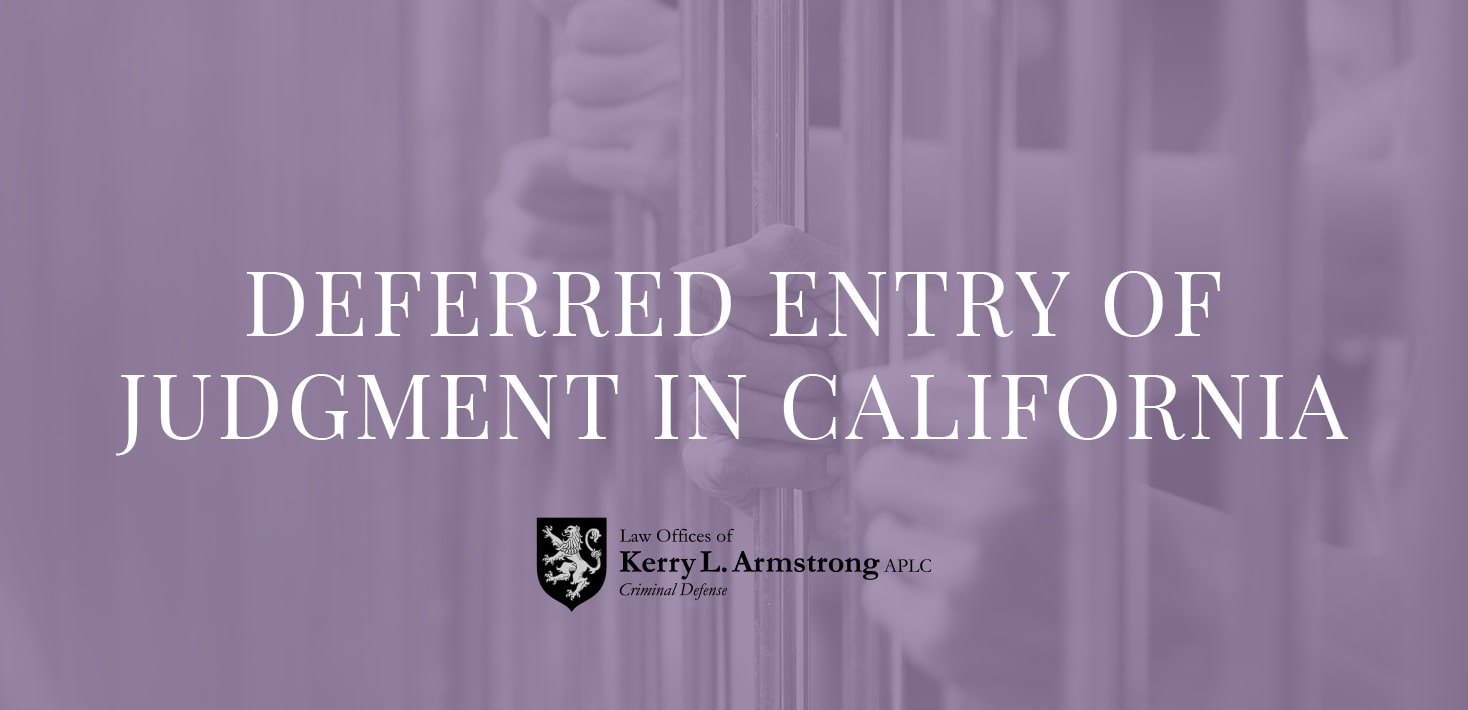
If you have been charged with a substance abuse-related crime, you’re probably wondering what deferred entry of judgment is and how you can get it.
Deferred judgment in California, also known as deferred adjudication, is essentially a delayed court judgment.
In a deferred judgment, the defendant successfully participates in a probationary period before any sentencing or a conviction. If the defendant completes probation, the court will dismiss the charges and seal the defendant’s arrest.
During the probationary period of deferred judgment, you must complete a term of supervised probation. You must complete all the terms of your probation, which may include:
- Community service;
- Restitution to victims;
- Substance abuse treatment;
- Abstinence from drugs and alcohol;
- Mental health counseling;
- Cognitive-behavioral therapy; and
- Fines.
The purpose of these terms is to help rehabilitate and punish you for your crime. They are often chosen to address issues related to your offense.
How Do I Get Deferred Adjudication in California?
Deferred adjudication is not available for all criminal defendants. Only defendants with non-violent felony or misdemeanor offenses can participate in the program, according to California law.
Defendants facing drug crimes can possibly get a deferred entry of judgment for 18 months to three years, provided they follow their probation terms.
Potentially qualifying offenses for deferred entry of judgment include but are not limited to:
- No prior convictions with controlled substances;
- No violence involved with your crime;
- No evidence that you committed the drug offense (sale or possession for sale) besides one of the listed crimes;
- No past failure of probation or parole;
- No deferred entry of judgment for other crimes in the past five years; and
- No felony convictions in the past five years.
Does Deferred Entry of Judgment Show on My Background Check?
During the deferred judgment, your criminal record may show the crime you plead guilty to and that the sentence is deferred. After you complete deferred judgment, you can withdraw your guilty plea.
After doing so, your criminal record will show that the case was dismissed. However, the offense is only sealed for private parties such as employers and landlords; government and law-enforcement will still be able to see it on background checks and criminal records.
If you need help sealing your records after deferred judgment, contact a criminal defense attorney as soon as possible.
Get Help from an Experienced Criminal Defense Attorney
Understanding the process of deferred entry of judgment can be a confusing process. If you are eligible for deferred entry of the judgment or have questions about the process, contact the Law Offices of Kerry L. Armstrong, APLC, today.
With hundreds of cases won for our clients, we are ready to help you fight your criminal charges.


